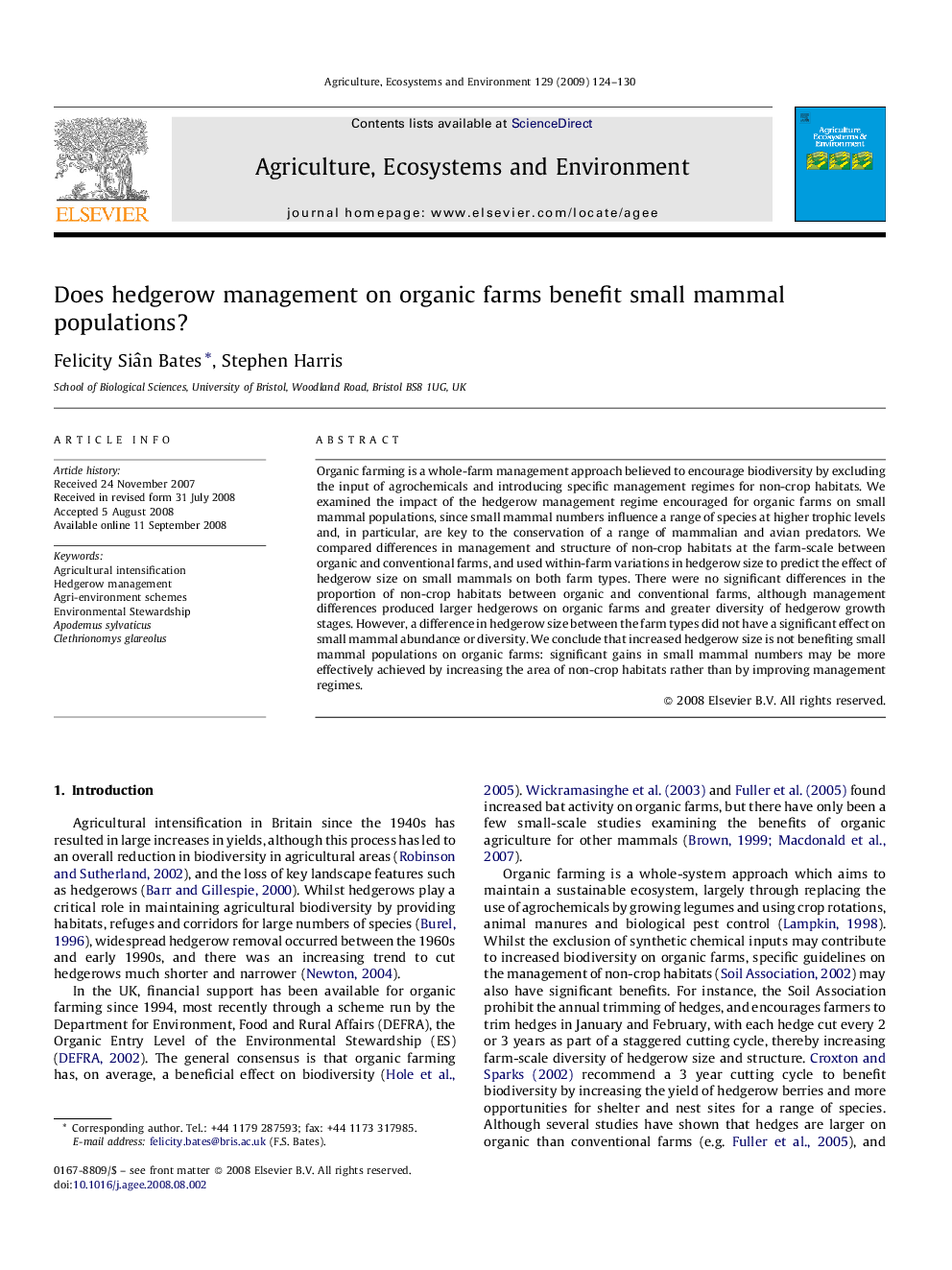| Article ID | Journal | Published Year | Pages | File Type |
|---|---|---|---|---|
| 2415306 | Agriculture, Ecosystems & Environment | 2009 | 7 Pages |
Organic farming is a whole-farm management approach believed to encourage biodiversity by excluding the input of agrochemicals and introducing specific management regimes for non-crop habitats. We examined the impact of the hedgerow management regime encouraged for organic farms on small mammal populations, since small mammal numbers influence a range of species at higher trophic levels and, in particular, are key to the conservation of a range of mammalian and avian predators. We compared differences in management and structure of non-crop habitats at the farm-scale between organic and conventional farms, and used within-farm variations in hedgerow size to predict the effect of hedgerow size on small mammals on both farm types. There were no significant differences in the proportion of non-crop habitats between organic and conventional farms, although management differences produced larger hedgerows on organic farms and greater diversity of hedgerow growth stages. However, a difference in hedgerow size between the farm types did not have a significant effect on small mammal abundance or diversity. We conclude that increased hedgerow size is not benefiting small mammal populations on organic farms: significant gains in small mammal numbers may be more effectively achieved by increasing the area of non-crop habitats rather than by improving management regimes.
